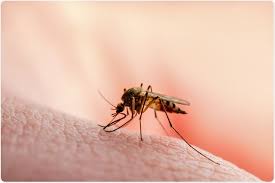
Malaria: A Global Health Challenge
Dr. Gagan Brar, Senior Consultant in Critical Care Medicine at Aster RV Hospital, emphasizes the enduring threat posed by malaria, a disease transmitted by the Plasmodium parasite through mosquito bites. Despite concerted global efforts, malaria continues to be a significant public health concern worldwide. Understanding the reasons for its persistence, successful eradication strategies, symptoms, risk factors, and its intersection with other health issues like COVID-19 is vital for advancing global health agendas.
The persistence of malaria in certain regions can be attributed to a myriad of factors. These include the complex nature of the malaria parasite, which exists in various species and strains, some of which have developed resistance to treatment. Additionally, challenges in vector control, drug resistance, socioeconomic factors such as poverty and inadequate healthcare infrastructure, and environmental factors like climate change all contribute to the ongoing transmission of the disease.
Despite these challenges, significant progress has been made in malaria eradication efforts. Forty-four countries and territories have been certified as malaria-free by the World Health Organization (WHO). These nations have implemented comprehensive measures such as robust surveillance systems, sustainable control measures, and rigorous certification processes to achieve malaria-free status.
Symptoms of malaria include fever, chills, headaches, body aches, fatigue, nausea, vomiting, and abdominal pain. In severe cases, jaundice, seizures, and coma may occur. Preventive measures include the use of insect repellents, sleeping under mosquito nets, wearing protective clothing, and taking anti-malarial medications. However, risk factors such as travel to endemic areas, outdoor activities, and failure to use protective measures can increase the likelihood of contracting the disease.
After recovery from malaria, individuals may experience relapse, particularly with certain Plasmodium infections. Co-infection with malaria and COVID-19 may lead to more severe illness and complications, underscoring the importance of comprehensive health responses.
Addressing malaria requires sustained political commitment, international collaboration, innovation, and investment in health systems. Understanding symptoms, risk factors, and intersections with other health issues like COVID-19 is essential for advancing global efforts towards malaria eradication.